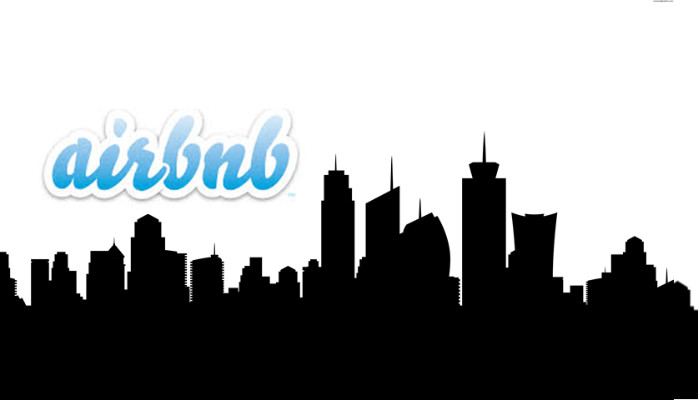
The Free Market Realities of AirBnB
AirBnB has received much attention, granting any individual with a room the chance to be a landlord. It’s a classic rags to riches story to be expected in a free market. Characteristic of a free market, it not only has its winners, but also its scofflaws, exploiters, unintended consequences, and unpaid taxes.
Many have been able to earn enough via AirBnB to pay their rent with a few nights rental. One sharing entrepreneur in San Francisco leases three apartments in the same San Francisco building, and at 90% occupancy, makes $2,000 per month after expenses, or $72,000 per year. He’s planning on leasing three more in this building, and could net $144,000 a year. The apartments are furnished with IKEA furniture. This is a dream scenario for any big city dweller, being a landlord without having to buy buildings at big city prices.
But its not always legal to rent out one of your rooms when you’re renting the apartment. In fact, up to two-thirds of New York AirBnB renters may be renting illegally according to state law. The state has shut down 200 short term rental apartments.
Landlords have recognized the potential bonanza of daily rentals and have participated in the sharing economy as well. NY state attorney general concludes about 30% of the state’s AirBnB listings are from multiple listers, suggesting landlords are sharing rather than renting.
It was probably not AirBnB founders’ original intent, but AirBnB is causing high RENTAL prices of apartments while simultaneously pushing down HOTEL prices. Traditional landlords looking for a reason to free up an apartment could evict tenants for illegally renting out their rooms. Simultaneously, landlords raise rent since AirBnBers can afford to pay more if they re-rent rooms or the whole apartment. Hotels find consumers prefer to pay less for a private apartment at a lower rate than the hotel and have to respond by lowering their rates.
The popularity of this housing sharing economy has reduced rental vacancy, making the rental market more efficient. The decline of rental housing units puts disproportional pressure on low income families. Estimates are 20,000 apartments may have been taken out of the traditional rental market due to the sharing economy. Lower supply leads to higher prices for remaining units, causing a disproportional impact on low income families. The number of available lower cost rental units declines in the market. Further, while rent control laws were instituted to support low income families, the sharing economy created an alternate revenue-generating opportunity as some landlords subvert rent control by “sharing” their apartments.
Similarly, lower priced, non-business traveler hotels that serve lower income visitors are deleteriously affected as better accommodations are found for the same or lower prices. While better for less seems appropriate in a free market, the market is not as efficient as might be expected. Adding to the woes of hotels, academic research suggests a competitive advantage is held by AirBnB against any hotel, even if the hotel is renting out the same AirBnB room. AirBnB renters provide a more generous evaluation of a hotel than do consumers who rent directly from that same hotel. There seems to be some kind of evaluative generosity granted to a residence from a personal connection over a traditional business.
These entrepreneurial efforts have not gone unnoticed by the IRS. Ignorant renters in the AirBnB network frequently are unaware that rental income is income that must be reported to the IRS. The company reports user income to the IRS and this income is easily traceable. Those who fail to report their income can expect the IRS to reach out.
There is no doubt AirBnB has created opportunistic economic order out of chaos, the chaos being the millions of inefficiently used housing resource with no governing body to exact profit. But it has it has also created the ripe potential for scofflaws, exploiters, unintended consequences and tax evaders.
Published from: https://omura.wordpress.com/2015/03/29/the-free-market-realities-of-airbnb/
Deputy General Counsel @ Michigan Supreme Court
9yDean Omura, I enjoyed the article that you published concerning Airbnb. As you may remember, I have been an Airbnb "host" in East Lansing (the first in the city) for almost 4 years. A few of my friends from undergrad at Notre Dame often discuss "social justice" issues. One of our recent conversations considered the "shared economy" and its impact on lower-wage workers. We considered Lyft, Uber, and Airbnb and noted that the ability to participate hinges on a high barrier to enter for lower-wage workers. You need a serviceable vehicle for Uber/Lyft and a home in a desirable neighborhood with Airbnb. Moreover, Uber/Lyft compete directly with cab companies. Cab companies often employe lower-wage workers and rent the cabs to such workers. With Airbnb, as you noted, lower-end hotels are disproportionately affected by Airbnb bookings. Since most hotels employ large numbers of minimum-wage or near-minimum-wage workers, an Airbnb booking negatively correlates with the amount of work available to these workers. I think it would be very interesting to read about the "shared economy's" broader impact on the labor market. We are inundated with Horatio Alger stories of drivers (or other participants in the shared economy) who have made a lot driving for an Uber. These stories are only one side of the coin. Thank you for publishing the article,
Transportation Coordinator at US Army
9yThis creates many opportunities in the realm of labor market efficiency. I was thinking of utilizing it myself out of the Army to bounce around a region to find work. Have to run the numbers but it's an avenue.